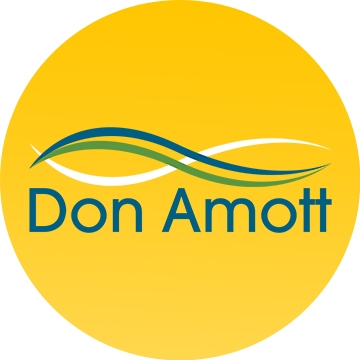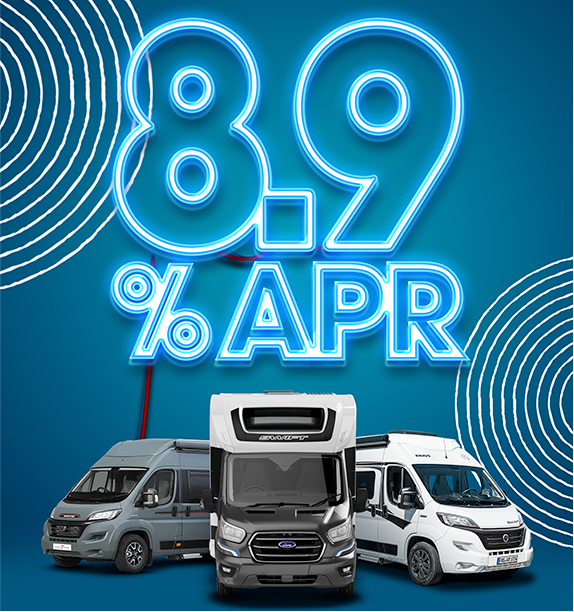The Ultimate Guide to Motorhoming in France
5 minutes well spent
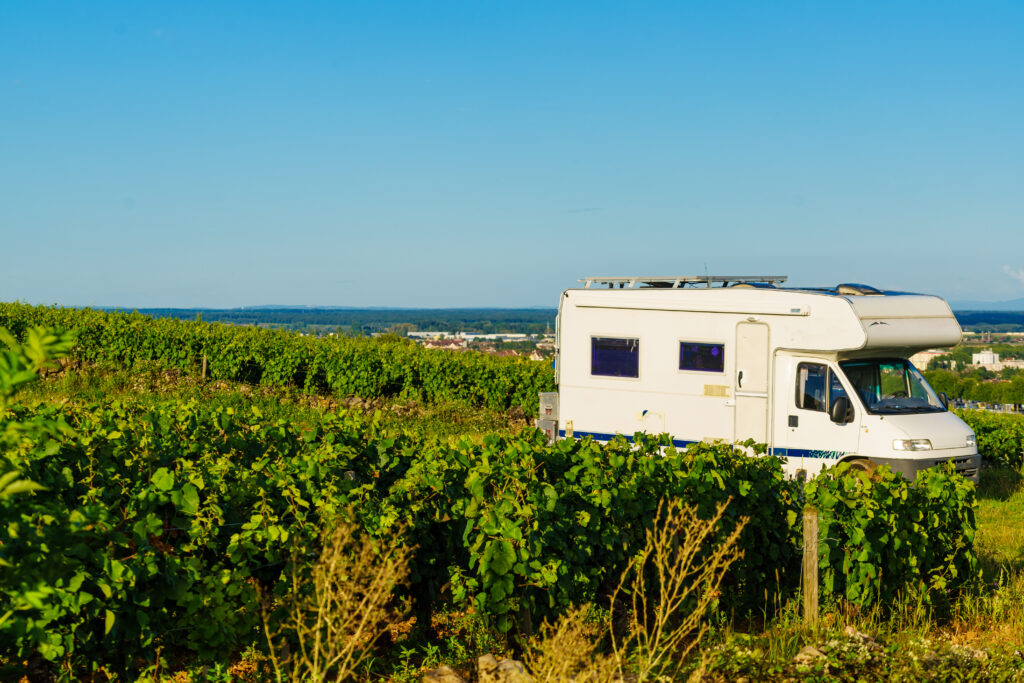
France is one of the most popular European countries for UK motorhomers to enjoy. It offers the perfect blend of scenic landscapes, historical landmarks and delightful cuisine. For those who’ve not yet motorhomed in France, however, there are a few specific things to keep in mind, from understanding the rules of the road to navigating the toll motorways. This edition of the Don Amott blog covers everything you need to know to enjoy a smooth and memorable Gallic motorhome adventure including routes, legal requirements and how to get there.
Routes and Places
First things first, reasons to go. France can showcase a wealth of regions that are perfect for motorhome travel, with something for every taste.
- The Loire Valley: Known as ‘the garden of France’, the Loire Valley lies between Paris and Nantes and is famous for its stunning châteaux, vineyards and charming villages. Popular stops include Château de Chambord, Château de Chenonceau and the towns of Tours and Amboise.
- Provence: A motorhome road trip through Provence and the French Riviera, in the south-east of France, offers mesmerising lavender fields, stunning sun-drenched villages and glorious Mediterranean beaches. Continuing along the coast will bring you to the glamorous cities of Nice, Cannes and Monaco.
- Normandy: This coastal region is steeped in history. From the historic D-Day beaches of World War II to the stunning Mont Saint-Michel, Normandy’s picturesque coastline and inland rural charm make it a must-see.
- French Alps: If you’re looking for mountains, skiing and breathtaking views, the Alps represents paradise for outdoor enthusiasts. Winterproof motorhomes are essential here if you plan to visit during the colder months.
- Brittany: One of Europe’s six Celtic nations (the other five being in the British isles), Brittany offers rugged and dramatic coastline showcasing historic ancient castles, charming fishing villages and dramatic cliff views.
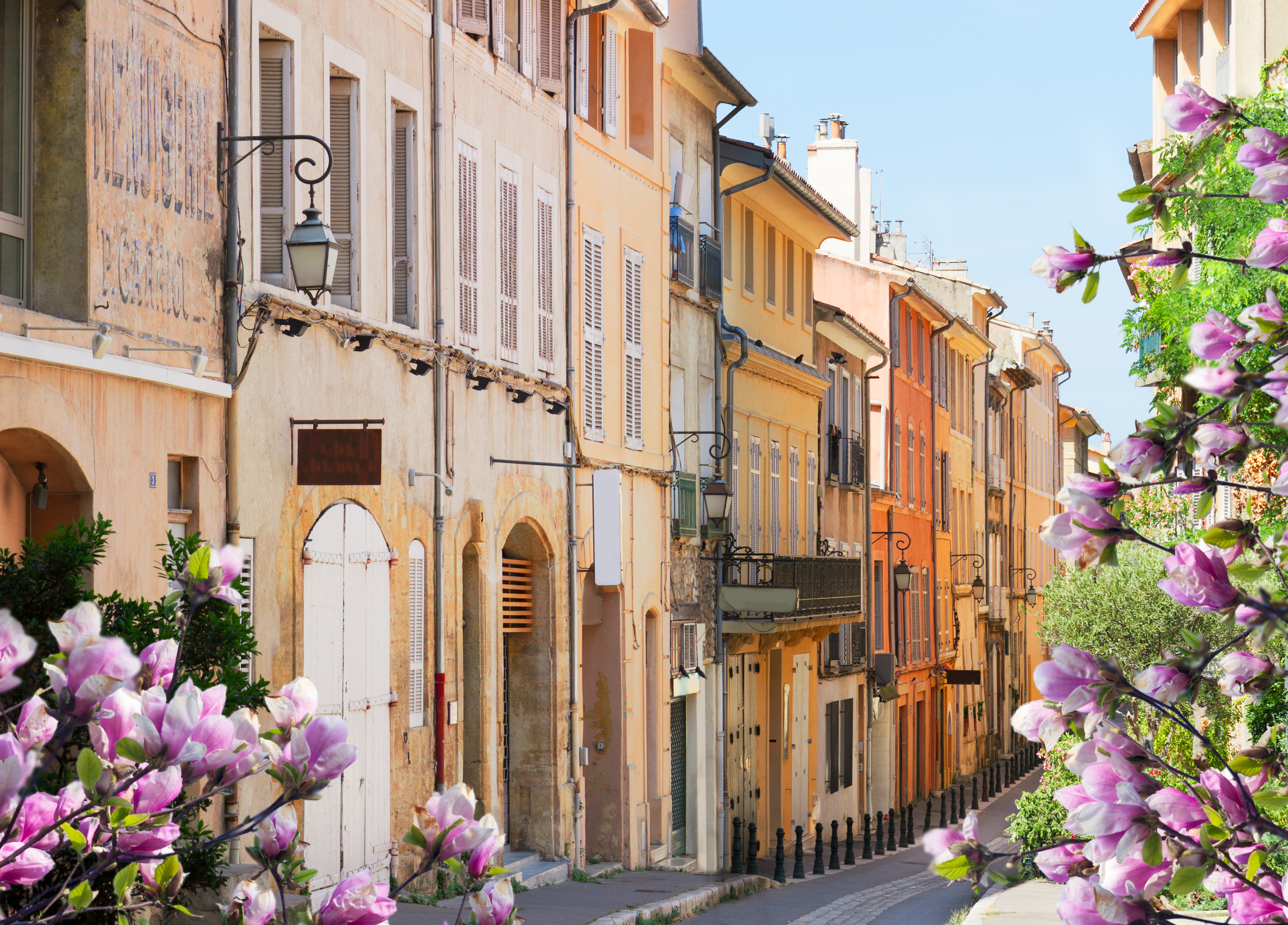
Motorhome Aires and Campsites
Scattered throughout the country, France has an extensive network of aires (these are designated stops for motorhomes). Typically, free or low-cost, you can park and (in some cases) take on water and dispose of waste. Unlike campsites, you can’t book your place at an aire. They’re strictly first-come, first-served. Motorhome aires are ideal for short-term stops as you’re moving around – but for longer stays, campsites or designated motorhome campsites may be more appropriate.
- Paris: The Camping de Paris near the Bois de Boulogne is a great base for exploring the French capital.
- Le Mont-Saint-Michel: There is a motorhome aire located near the iconic island commune, providing a beautiful place to park with stunning views.
Legal and Documentation
When you’re motorhoming in France, it’s important to make sure you’ve got all the necessary documentation and that you understand the legal requirements for driving in the country.
- Driving Licence: A UK driving licence is valid in France. However, if your licence is a paper-only version (ie. without a photo), you must carry an International Driving Permit (IDP) in addition to your UK licence.
- Registration: Keep a copy of your motorhome’s registration documents with you at all times.
- Insurance: Make sure that your motorhome insurance covers you for driving in France. Many UK policies will automatically cover you in Europe for up to 90 days, but it’s always wise to double check the details.
- Breakdown: If you don’t have European breakdown cover, it’s a really smart move to get some sorted out before you travel.
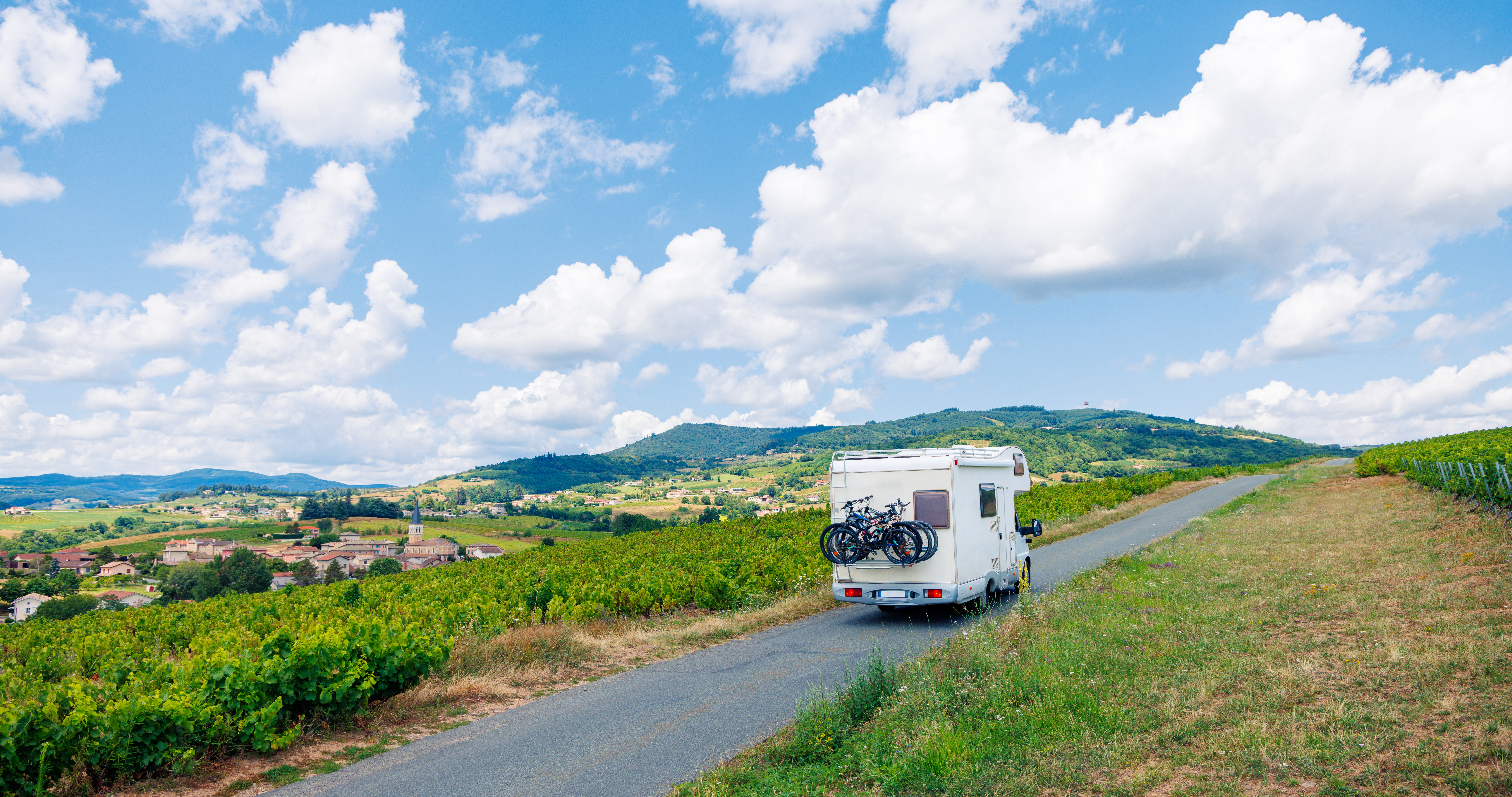
Environmental Zones (Crit’Air)
Certain cities in France (including Paris, Lyon and Grenoble), have low-emission zones (called Crit’Air zones) where only vehicles with a special environmental sticker are allowed to enter. The sticker (aka. Crit’Air vignette) indicates the emission category of your vehicle.
Speed Limits
Motorhome speed limits in France depend on the type of road you’re on. There may also be local speed limits so you should pay attention to road signs.
- Autoroutes: The speed limit is 130 km/h (80 mph) in dry conditions, and 110 km/h (68 mph) in wet conditions.
- Dual carriageways: The speed limit is 110 km/h (68 mph) in dry conditions, and 90 km/h (56 mph) in wet conditions.
- Rural roads: The speed limit is 80 km/h (50 mph).
- Urban areas: The speed limit is 50 km/h (31 mph).
Alcohol and Drugs
Just like in the UK, the best advice we can offer is don’t drink anything if you intend to drive your motorhome in France. Be mindful of the following to avoid fines or worse. The legal blood alcohol limit in France is lower than the UK’s, at 0.05%, and it’s 0.02% for professional drivers. France has a zero-tolerance policy for drugs, and there are frequent roadside checks.
Safety
In France, all passengers must wear seat belts, regardless of where they are sitting in the vehicle. In addition, it’s mandatory to have a high-visibility vest and warning triangle with you in your vehicle and available in the event of a breakdown at all times.
Best Ways to Get to France
There are two ways to travel from the UK to France by motorhome. Both are convenient and reliable. They are the Eurotunnel or by taking a ferry.
Eurotunnel: Most often referred to as the Channel Tunnel (as it stretches beneath the English Channel), the Eurotunnel is a quick and convenient way to get from the UK to France, or make that journey in the opposite direction.
- Duration: Approximately 35 minutes.
- Advantages: Fast, efficient and convenient. You can drive directly onto the shuttle with no need to leave your vehicle.
- Cost: Prices vary, but the tunnel can be more expensive during peak times.
- Booking: Book in advance, especially during busy periods like summer.
Ferry
- Popular routes: There are several ferry routes from the UK to France, including Dover to Calais, Portsmouth to Le Havre and Newhaven to Dieppe.
- Duration: Depending on the route, the crossing can take between an hour and a half and 6 hours.
- Advantages: The ferry offers more flexibility in terms of travel times. You also have the option to get out and stretch your legs when crossing.
France on a Budget
France can be an expensive destination, but there are many ways you can motorhome on a budget.
- Aires: Many motorhome aires are free or low-cost.
- Supermarkets: Take advantage of France’s incredible food markets and supermarkets for budget-friendly meals.
- Parking: Look for designated free parking in smaller towns, away from the tourist hotspots.
Taking Your Dog to France
Travelling with a pet is relatively straightforward in France, but you’ll need to ensure you’re correctly prepared.
- Pet Passport: This includes proof of your dog’s rabies vaccination.
- Microchip: Your pet must be microchipped for identification.
- Tapeworm Treatment: For dogs, a vet visit for tapeworm treatment is required 24 to 120 hours before returning to the UK.
France is very pet-friendly. Many campsites, motorhome aires and even some beaches allow dogs.
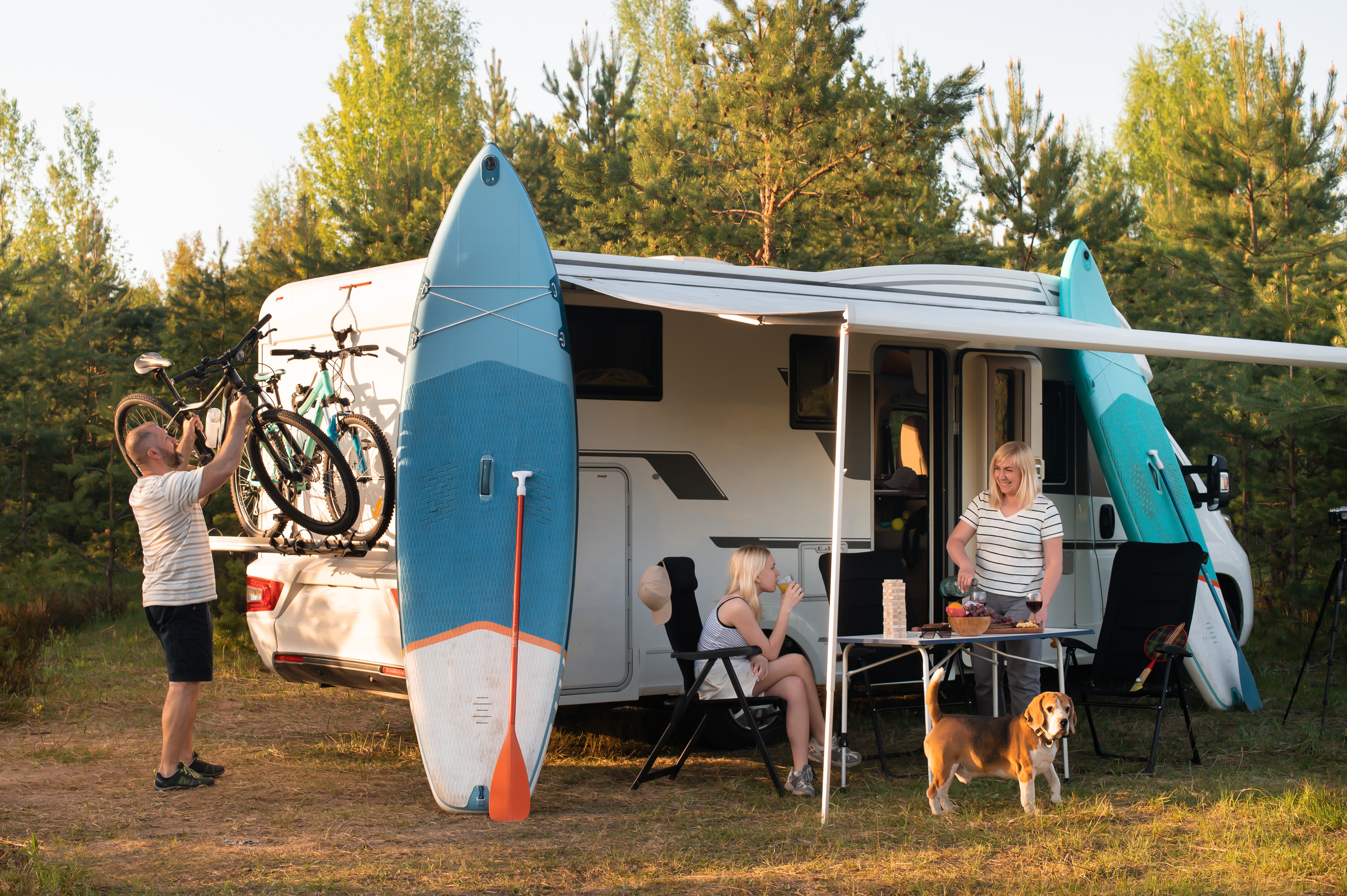
Practicalities of Motorhoming in France
- Fuel: France has a good string of garages throughout the country, though it’s important to remember that many stations may not be open 24/7 (particularly in rural areas). Keep an eye on your fuel levels and make the effort to top up in larger towns and cities.
- Waste: Make sure you empty your motorhome’s waste tank at designated points (either at aires or on campsites). France has a good infrastructure for waste disposal, so you won’t need to search too hard.
- Parking: Be sure to check for specific parking regulations, and always park in designated spaces for motorhomes. Avoid parking on the streets without proper signage. In cities like Paris and Nice, parking can be rather tricky.
Motorhoming in France is an excellent way to explore diverse regions and enjoy plenty of culinary and cultural delights. With the right prep, you can ensure your French motorhome adventure is enjoyable and hassle-free. If you’re looking to travel there in a new or used motorhome or campervan, speak to a member of our friendly team at Don Amott Leisure Kingdom. We’re here to help!
We’ve got 100s of new and used stock for you to discover
